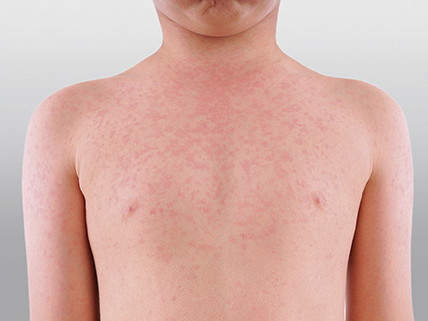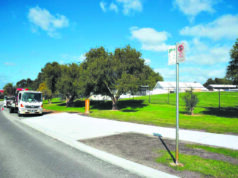
Western Australians who reside in or have visited the Perth metropolitan area since mid-September, particularly those who travelled on flight NZ175 departing Auckland, New Zealand on September 23 at 2.20pm are being asked to be alert to the risk of measles.
There have now been 17 new confirmed measles cases in the Perth metropolitan area and a total of 43 confirmed cases in Western Australia in 2019.
While the majority of the cases predominantly have been found in the Rockingham area, the risk of exposure to measles applies to travellers on the NZ175 flight and to other people within the broader metropolitan area who may have unknowingly been exposed.
These individuals should remain vigilant for the onset of measles symptoms for the next three weeks.
Acting director of the Communicable Disease Control Directorate Dr Paul Effler said the department does not issue breakdowns of measles cases by suburb of residence.
“However people need to be aware that individuals with measles may travel widely around town before knowing they are infectious with the disease,” he said.
“This means that as long as there are cases occurring in the Perth area, persons who live in suburbs outside where the cases reside could inadvertently be exposed to an infectious person.
“The most effective way to control measles is to ensure that everyone aged 53 years and younger has had two documented doses of measles vaccine.”
A new measles vaccination program for adults was announced earlier this year.
It provides free vaccine for Western Australians born on or after 1966 who have not already received two doses of a measles-containing vaccine.
People can get the measles vaccine from the GP, Aboriginal Medical Service, travel clinic or community health immunisation clinic.
Dr Effler said the Department of Health WA is still trying to source willing patients, who are not infectious to speak publicly to the community.
“In the meantime, the government has commissioned the Australian Academy of Science to develop a suite of educational and promotional materials to raise awareness about measles,” he said.
Dr Effler said measles is a serious and highly contagious viral illness spread by tiny droplets released when infected people coughed or sneezed.
“Every measles case is treated as a public health emergency because of the risk of local spread,” he said.
Early symptoms include fever, cough, runny nose and sore eyes, followed by a red blotchy rash three or four days later.
Anybody who had had a potential exposure to measles, and who developed a fever with these other symptoms is advised to see a doctor.













